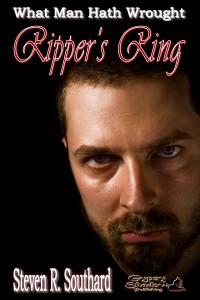Author Annie Dillard once wrote, “Write as if you were dying. At the same time, assume you write for an audience consisting solely of terminal patients.” The quote intrigued me. What did she mean?
Source
It’s from a 1989 essay in The New York Times titled “Write Till You Drop.” The paragraph continues, “That is, after all, the case. What would you begin writing if you knew you would die soon? What would you say to a dying patient that would not enrage by its triviality?”
Picture the situation. You are near death and so are your readers. The pen and pad (or computer) sit before you. How would you write differently than you do now?
Answers?
As morbid as the thought experiment may seem, some answers to that question occur to me:
- Don’t waste time. You haven’t much time for writing, nor do your readers for reading.
- Don’t ‘enrage by triviality.’ Write about what’s important, vital to being human. Write the thing you’d regret not having written, the thing readers would regret not having read.
- Don’t save your best for some later time. Don’t keep that masterpiece in reserve. There will be no later time.
Wonderful Concentration
English author Samuel Johnson said, “When a man knows he is to be hanged in a fortnight, it concentrates his mind wonderfully.” Dillard admonishes us to write that way all the time, with a wonderfully concentrated mind.
Socrates
Consider the last words of Socrates. At his trial he received a sentence of death. Imagine the ‘wonderful concentration’ of his mind as he drank hemlock and felt his limbs going numb. Some have reported his final words as, “Crito, we owe a rooster to Asclepius. Don’t forget to pay the debt.”
How can that be? On his deathbed, one of history’s greatest philosophers prattled about not having paid for a rooster? Is that not enraging by triviality?
Newer interpretations of those last words paint a different picture. Greeks considered Asclepius a god of medicine and the rooster a symbol of rebirth or eternal life, for it crows every morning. Some now think Socrates’ words a metaphor, a way of saying, “Athens may kill me, but philosophy lives on.” If so, that satisfies Ms. Dillard’s advice to write as if you were dying.
Triviality
Regarding the part of her advice referring to triviality, that confused me at first. What is trivial and what is not?
After all, author and politician Bruce Barton said, “Sometimes, when I consider what tremendous consequences come from little things, I am tempted to think that there are no little things.”
No little things? Aren’t they the trivial things?
Perhaps not. Mother Theresa said, “Not all of us can do great things. But we can do small things with great love.”
Ah, that might provide a clue regarding what Ms. Dillard meant by triviality. You may write about anything, large or small, but do so with great love. Use up every drop of your literary skill. It’s not the triviality of the subject, but the treatment of it by the writer.
In sports, we say a player ‘left if all on the field,’ meaning he gave it his utmost. I may be wrong, or I may be over-analyzing it, but that’s what I believe Annie Dillard meant in advising us to write as if we were dying, and as if our reading audience were dying as well.
If your next written sentence were your last, would readers say you ‘left it all on the field?’ Aim to write with a mind as wonderfully concentrated as that of—
Poseidon’s Scribe



